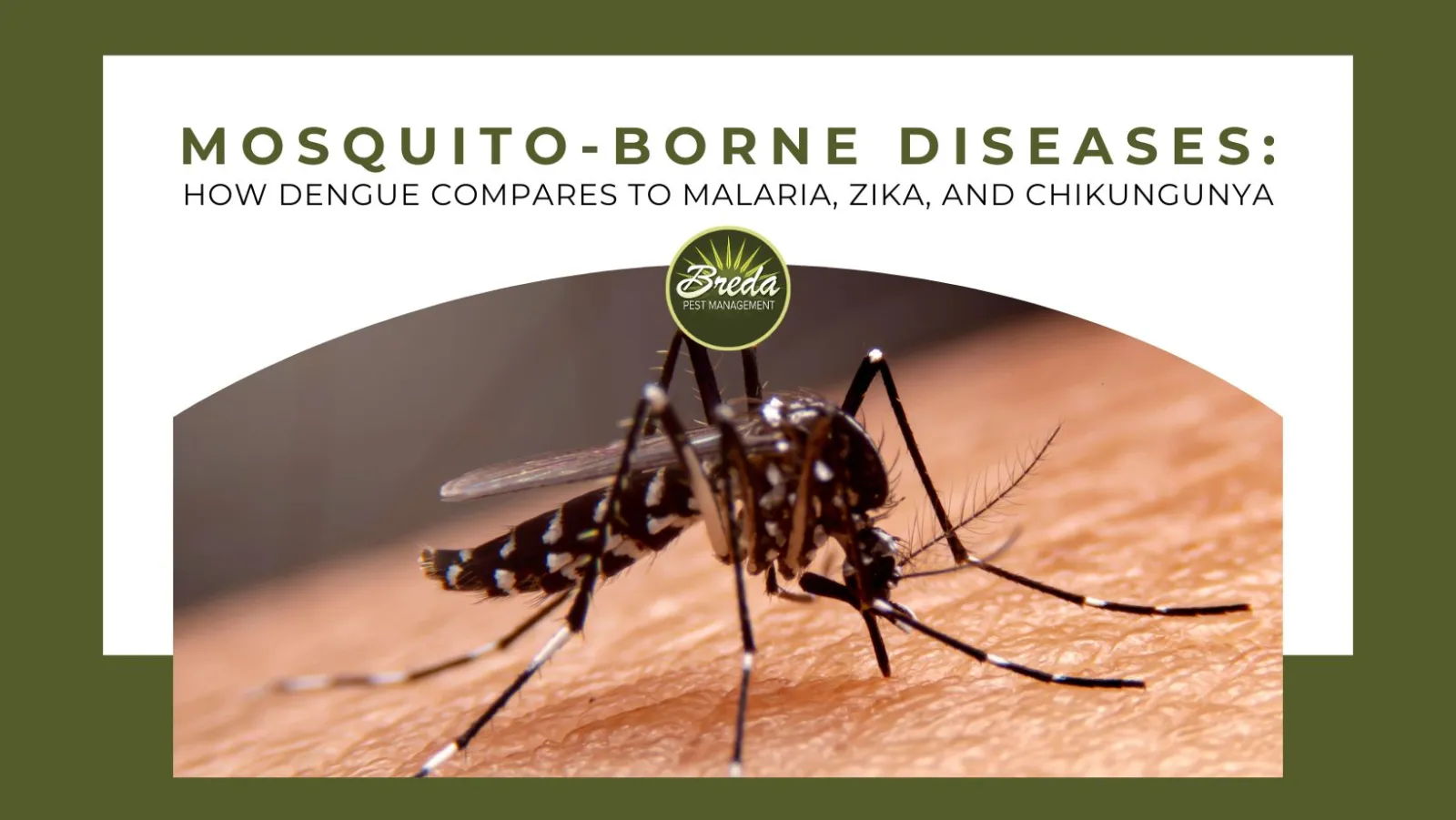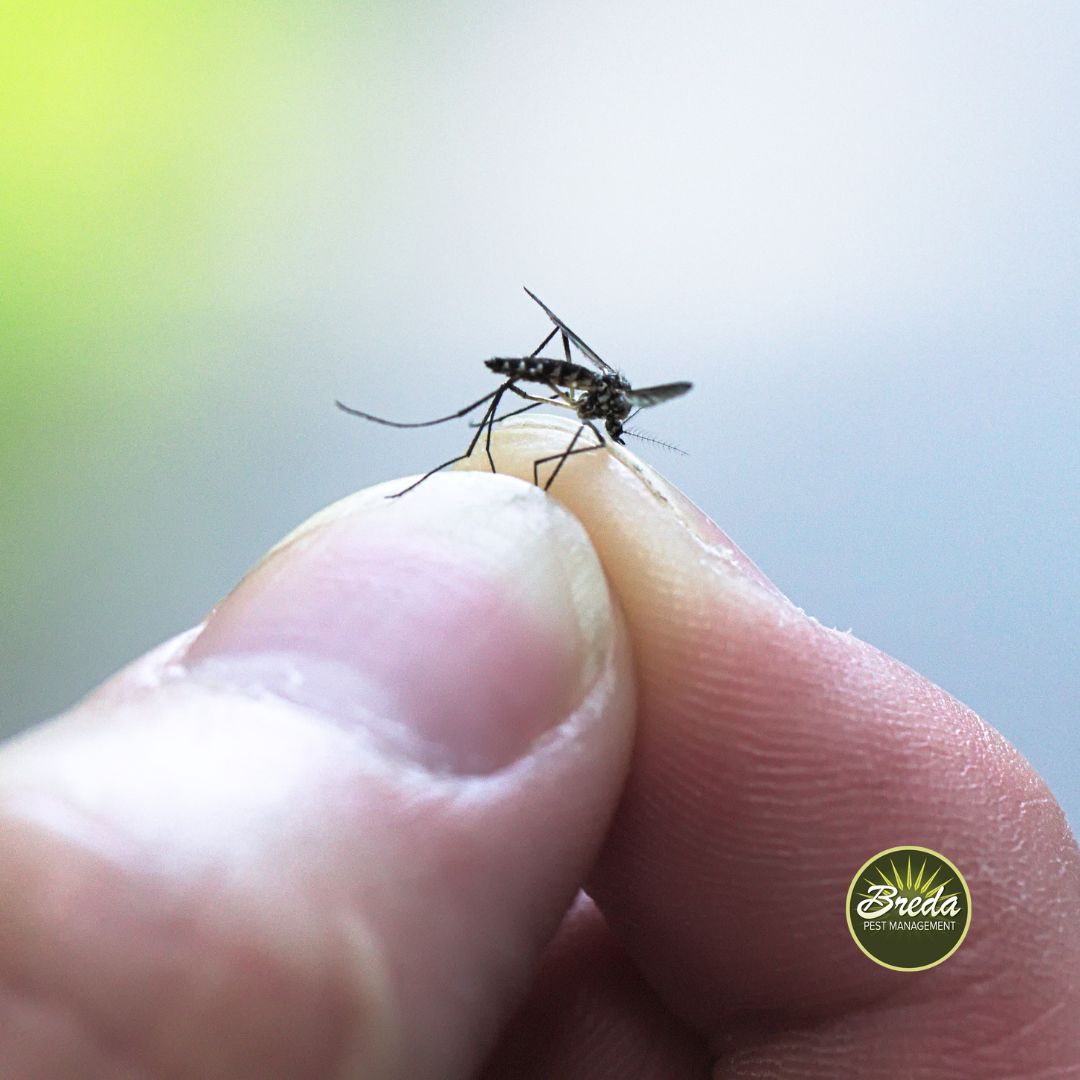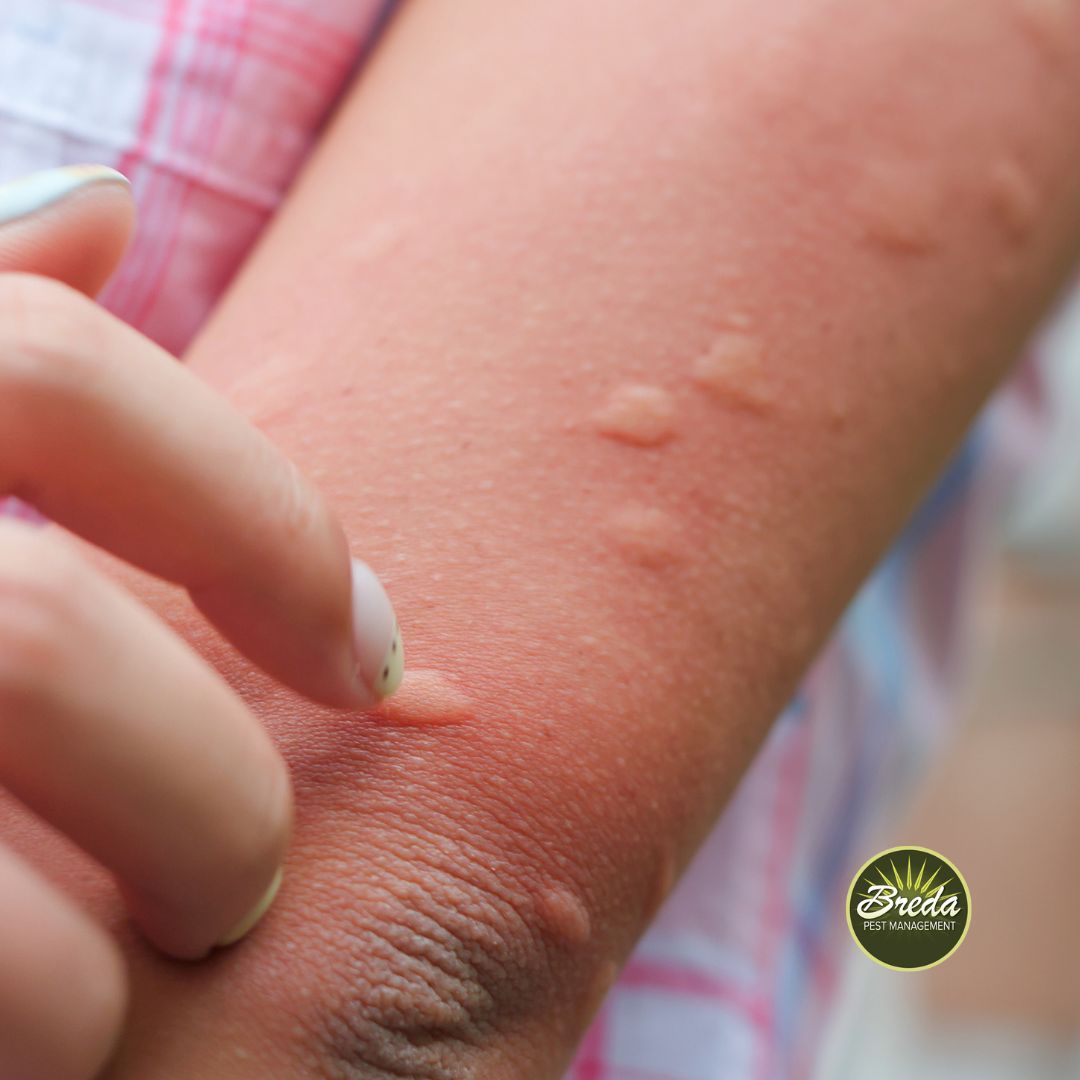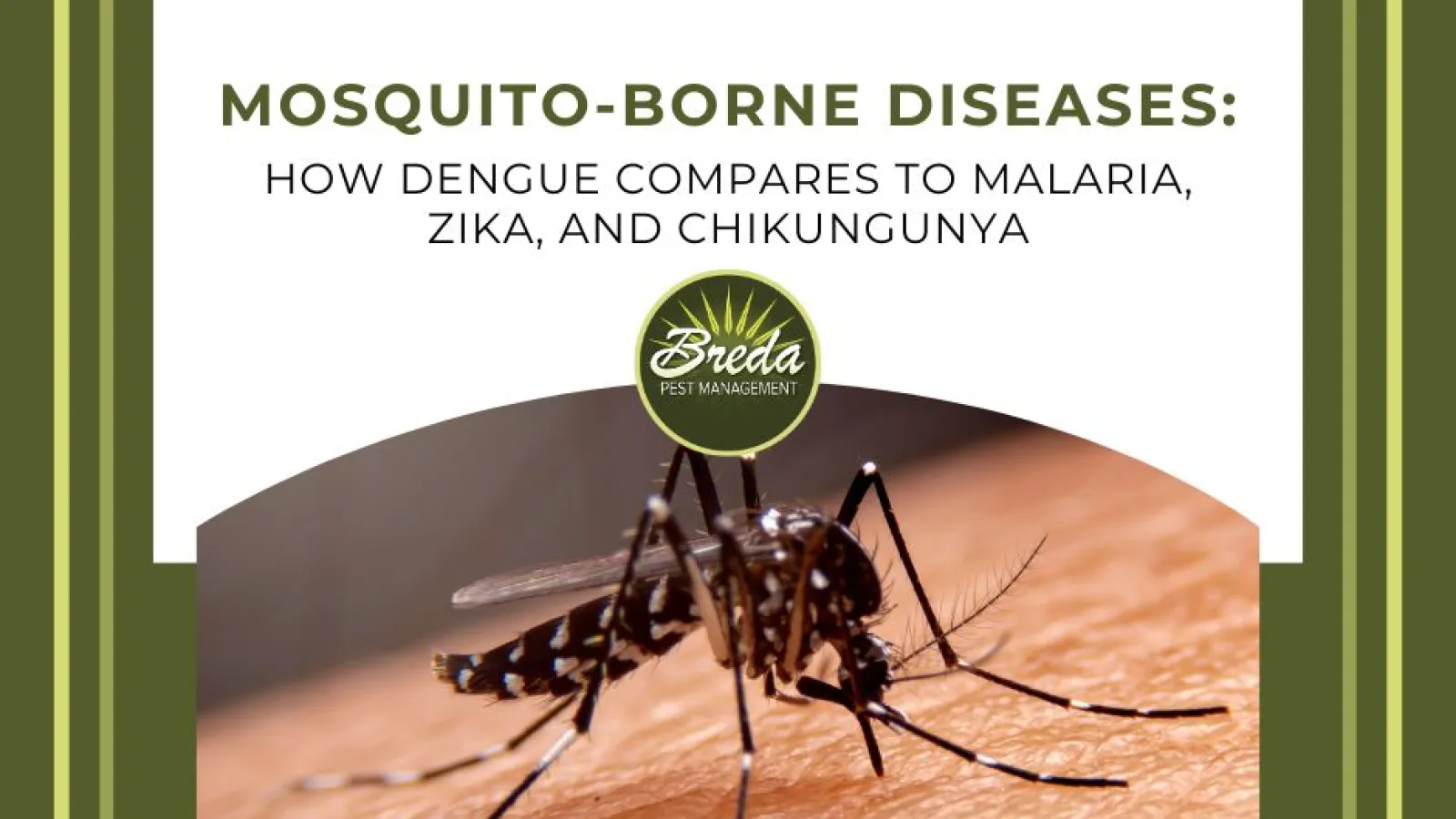
Mosquito-borne diseases pose significant health risks worldwide, affecting millions of people every year. Dengue, malaria, Zika, and chikungunya are particularly concerning diseases spread by mosquitoes. Understanding how these diseases compare is essential for effective prevention and treatment. Let's explore the similarities and differences between these mosquito-borne illnesses, focusing on symptoms, transmission, treatment, and prevention strategies.
Different Mosquito Species and Their Diseases
Not all mosquitoes carry the same diseases. Different species are responsible for transmitting various illnesses, similar to how not every tick carries Lyme disease—only the black-legged tick or deer tick does. For mosquitoes, the Aedes species, including Aedes aegypti and Aedes albopictus, are prevalent in Georgia and are known carriers of Zika, chikungunya, and dengue. This makes the presence of these mosquitoes a significant health concern for Georgia residents.

Comparing the Diseases
Dengue
Dengue fever is caused by the dengue virus, which is transmitted primarily by Aedes aegypti and Aedes albopictus mosquitoes. Symptoms include high fever, severe headache, pain behind the eyes, joint and muscle pain, rash, and mild bleeding. Severe cases can progress to dengue hemorrhagic fever or dengue shock syndrome, both potentially fatal.
Malaria
Malaria is caused by Plasmodium parasites, which are transmitted through the bites of infected Anopheles mosquitoes. It is most common in sub-Saharan Africa, South Asia, and parts of Central and South America. Symptoms include fever, chills, headache, nausea, vomiting, and muscle pain. Without prompt treatment, malaria can lead to severe complications and death.
Zika
Zika virus, spread by Aedes mosquitoes, has gained attention due to its link with birth defects. Symptoms are generally mild and include fever, rash, joint pain, and red eyes. However, Zika infection during pregnancy can cause serious birth defects, such as microcephaly.
Chikungunya
Chikungunya is transmitted by Aedes mosquitoes and causes fever and severe joint pain. Other symptoms include headache, muscle pain, joint swelling, and rash. While rarely fatal, the joint pain can be debilitating and persist for months.
Transmission and Geographic Distribution
Dengue and Zika: Primarily spread by Aedes aegypti and Aedes albopictus mosquitoes. These mosquitoes thrive in urban areas of tropical and subtropical regions, including Georgia.
Malaria: Transmitted by Anopheles mosquitoes, common in rural and semi-rural areas of tropical regions.
Chikungunya: Spread by Aedes mosquitoes, similar to dengue and Zika, found in similar geographic regions.
Symptoms and Diagnosis
Dengue: High fever, severe headache, pain behind the eyes, joint and muscle pain, rash, mild bleeding.
Malaria: Fever, chills, headache, nausea, vomiting, muscle pain.
Zika: Fever, rash, joint pain, red eyes, potential birth defects.
Chikungunya: Fever, severe joint pain, headache, muscle pain, joint swelling, rash.
Recognizing these symptoms early can lead to timely diagnosis and treatment, resulting in better outcomes.
Treatment and Prevention

Treatment
Dengue: No specific antiviral treatment; supportive care includes pain relievers, hydration, and rest.
Malaria: Treated with antimalarial medications; prompt treatment is crucial.
Zika: No specific treatment; supportive care includes rest, hydration, and over-the-counter pain relievers.
Chikungunya: No specific antiviral treatment; pain management and supportive care are essential.
Prevention
Preventing mosquito bites is the most effective way to avoid any of these diseases. Prevention steps include:
Using insect repellent
Wearing long-sleeved clothing
Installing window and door screens
Using mosquito nets
Eliminating standing water where mosquitoes breed
Understanding the differences between dengue, malaria, Zika, and chikungunya is vital for effective prevention and management of these mosquito-borne diseases. By recognizing the symptoms and implementing appropriate treatments and preventive measures, individuals can better protect themselves and their communities.
Staying informed about mosquito-borne diseases and taking proactive measures can significantly reduce the risk of infection. Always seek professional medical advice if you suspect you have contracted any of these diseases, and consider professional pest control services to keep your environment safe. For comprehensive and professional pest control solutions, contact BREDA Pest Management to safeguard your home from mosquitoes and other pests.
If you're tired of wondering what the pests in or around your home are doing and just want them gone, don't hesitate to give us a call. The BREDA Guarantee promises to protect your home and keep it protected—no matter the circumstances. Schedule an inspection online or give us a call at 770-466-6700.




